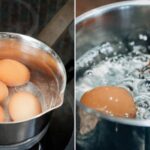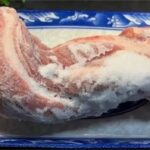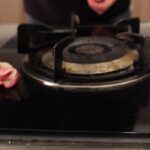Boiling eggs is an essential cooking technique, but it can pose some challenges, especially when it comes to peeling them. At times, peeling boiled eggs can become a frustrating task if the shells don’t come off easily. However, there’s a simple trick you can use to make the process a whole lot smoother. It involves adding salt or baking soda to the boiling water. Let’s delve into the details of this method and understand why it works so well.
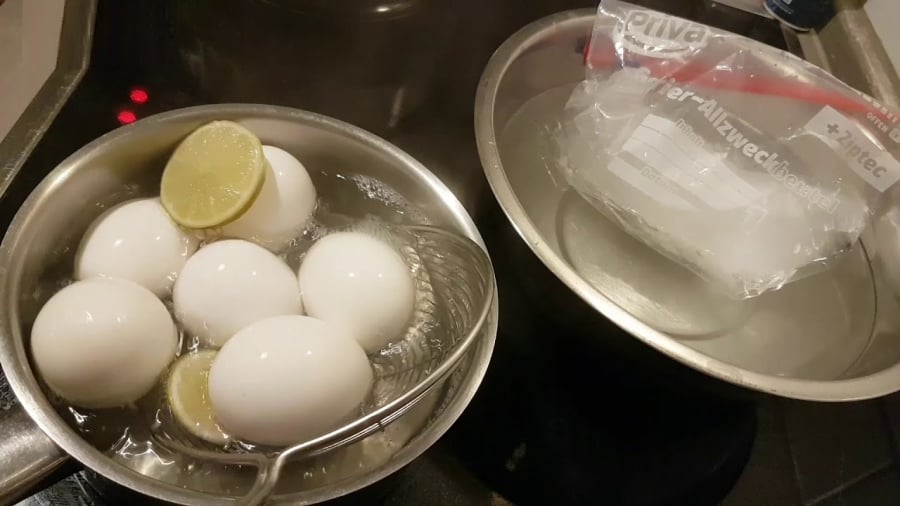
Quick Egg Peeling Trick
1. The Right Way to Boil Eggs
Boiling Eggs in Hot Water:
- Prepare the Eggs: Place the eggs in a pot and add cold water until they are fully submerged.
- Bring to a Boil: Put the pot on the stove and heat the water until it reaches a rolling boil. Once it’s boiling, reduce the heat to maintain a gentle boil.
- Cooking Time: Depending on your desired doneness:
- Soft-boiled: Cook for about 6-7 minutes.
- Medium-boiled: Cook for about 8-9 minutes.
- Hard-boiled: Cook for about 10-12 minutes.
Boiling Eggs in Cold Water:
- Prepare the Eggs: As before, place the eggs in a pot and add cold water to cover them completely.
- Bring to a Boil: Place the pot on the stove and heat the water until it boils. Then, reduce the heat and maintain a gentle boil for the desired cooking time.
- Cooking Time: Just like the previous method, the cooking time depends on how well you want the eggs done.
2. The Secret to Easy-to-Peel Eggs
Adding Salt or Baking Soda:
-
Salt: Add 1-2 teaspoons of salt to the water when you start heating it. Salt alters the chemistry of the egg’s inner membrane, making the peeling process easier.
-
Baking Soda: Alternatively, you can add 1/2 teaspoon of baking soda to the water. It increases the water’s pH, making the eggshell easier to remove.
Why It Works:
When eggs are boiled, not only does the outer shell expand, but the inner membrane does too. Salt and baking soda reduce the adhesion of this membrane to the egg white. This makes it easier to peel the shell off without damaging the egg.
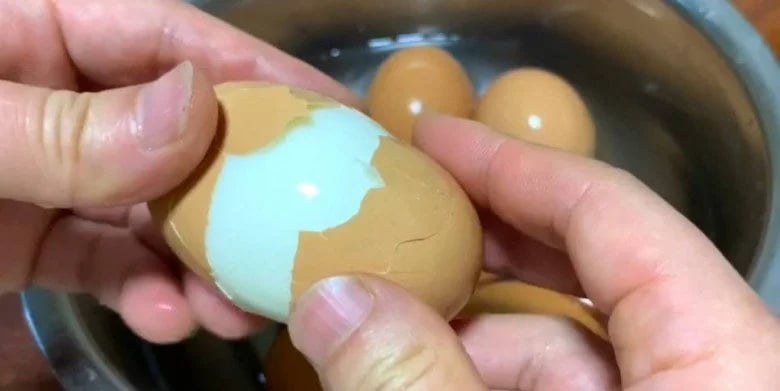
Easy Egg Peeling
3. Simple Steps for Hassle-Free Peeling
- Cool the Eggs: Immediately after boiling, plunge the eggs into ice-cold water. This not only cools them down but also helps loosen the shells.
- Gently Tap: Lightly tap the eggs to create small cracks on the surface. Then, carefully peel away the shell.
- Rinse: After removing the shell, rinse the eggs under cold running water to get rid of any remaining shell fragments.
4. Additional Tips for Easier Peeling
- Use Older Eggs: Older eggs tend to have shells that are easier to peel than fresh ones. If possible, use eggs that have been sitting in your refrigerator for a while before boiling.
- Post-Boiling Treatment: Once the shells are cracked, immediately place the eggs in cold water and gently shake them. This will help loosen the shell and the inner membrane.
Adding salt or baking soda to the boiling water not only saves you time and effort but also ensures that your eggs are effortlessly peeled without tearing or breaking. It’s a simple yet effective trick to enhance your cooking experience and make egg-based dishes a breeze. Happy cooking, and may your boiled eggs always be perfect!
Why Do the Bottoms of Pots Turn Black After Boiling Eggs?
The discoloration of the pot’s interior to a dark hue post-egg boiling is a rather common occurrence. Many have noticed this intriguing transformation, leaving them curious about the science behind it.
























